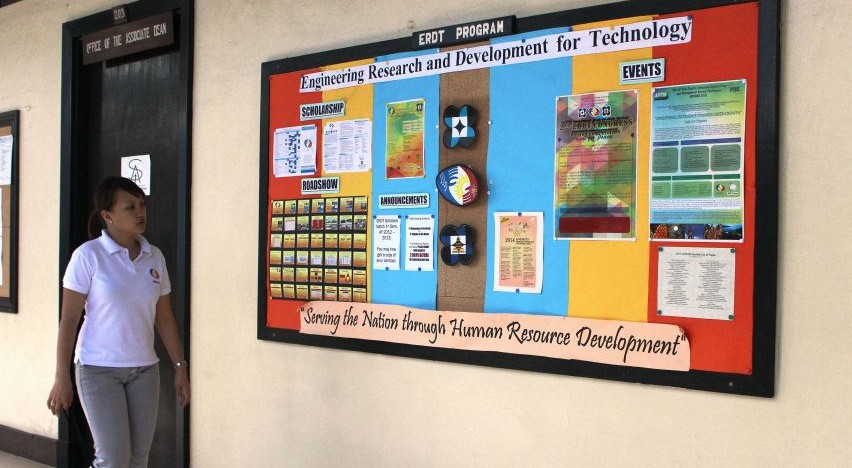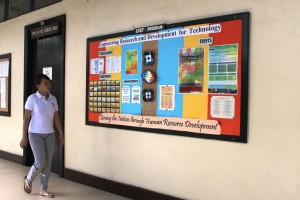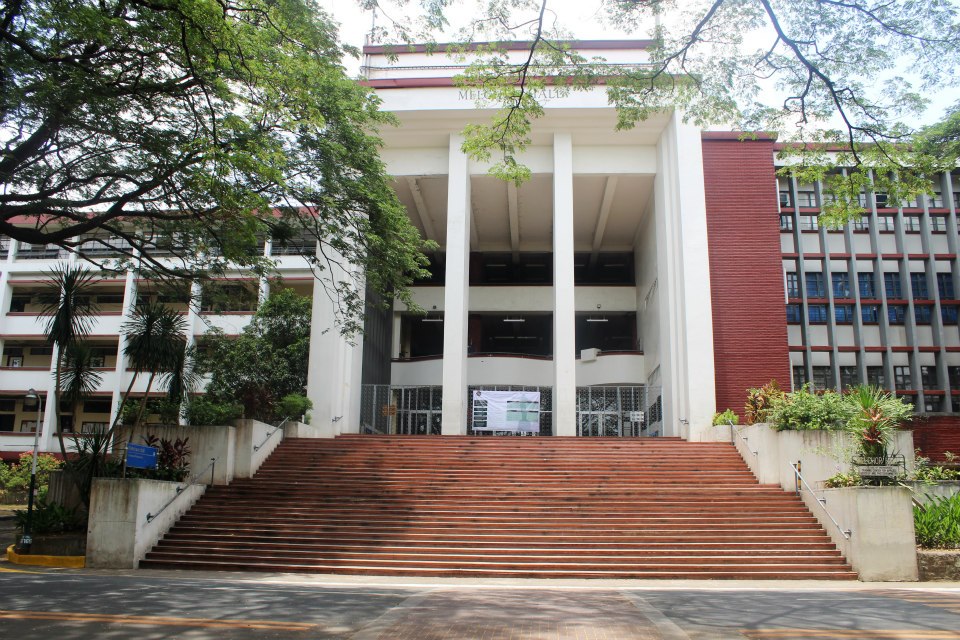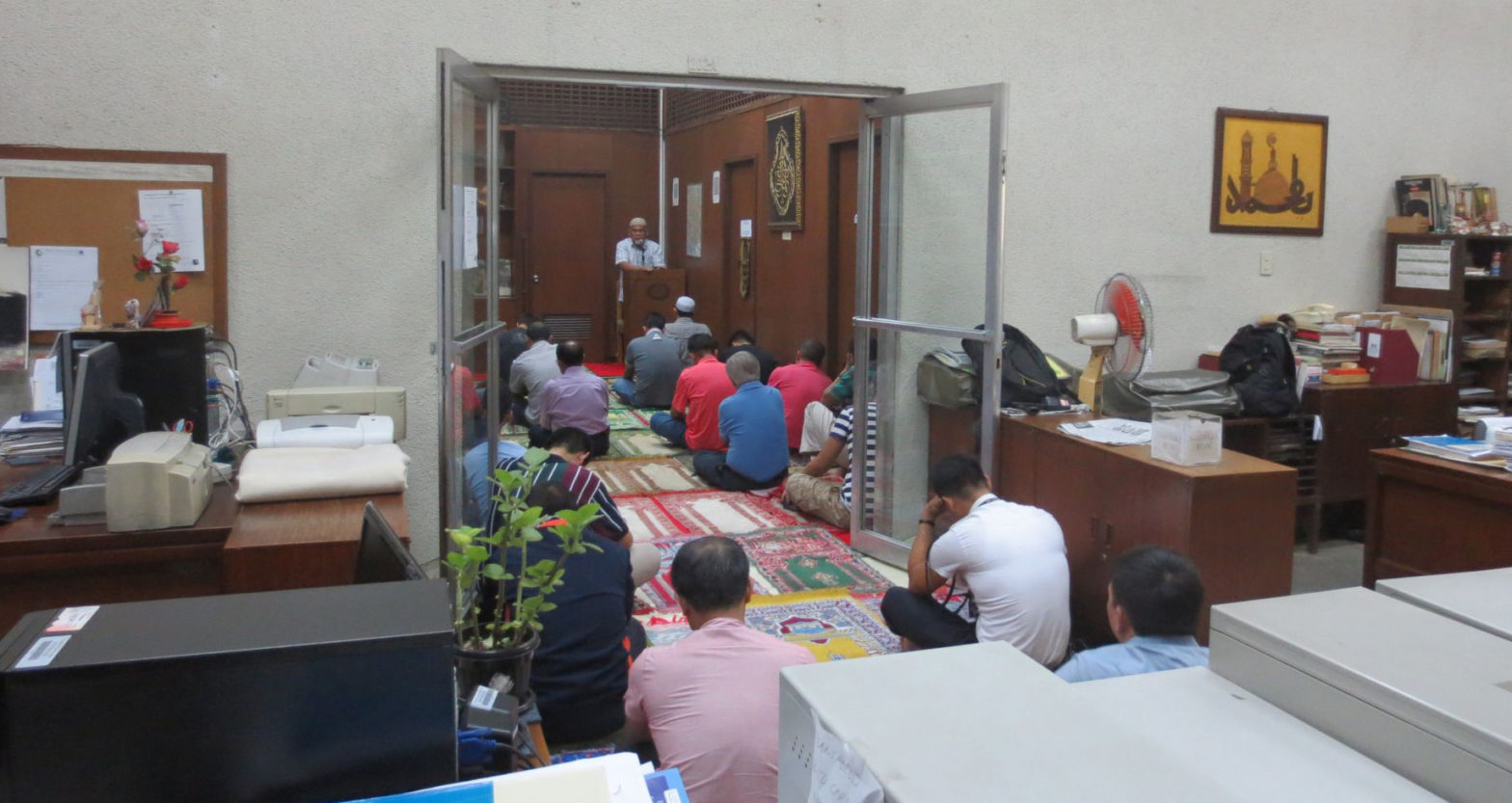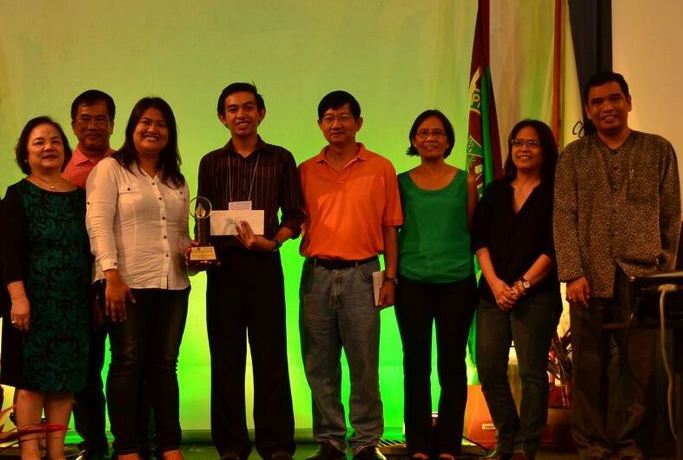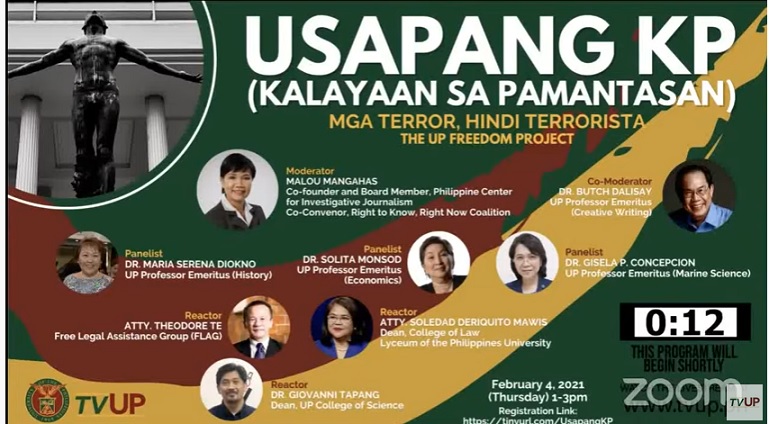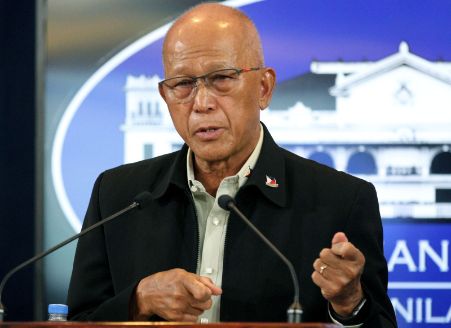By DARLENE CAY, VINCE NONATO, RALPH TY, ADRIENNE ADRE AND CHARRY ESPINO
(Conclusion)
ARWIN Cruz is unlike many graduate students at the University of the Philippines in Diliman. He studies full time at the UP College of Engineering and enjoys a full scholarship from the Engineering Research for Development and Technology (ERDT) Program.
But Cruz—and 266 other scientists enrolled in the ERDT program—could very well be part of the brain drain, succumbing to the lure of the private sector and even universities abroad because of the stringent rules and the discouraging system at the country’s premier State University.
The rules include an employment prohibition, a limited monthly stipend good only for three years, and the sluggish procurement of equipment, all of which contribute to delays in graduation of the country’s future scientists. Often, ERDT scholars have to cough up the funds to pursue their research projects, and wait months to be reimbursed.
Cruz (not his real name) is enrolled in nine units every semester. Since this academic load is equivalent to nine hours of classes weekly, he finds he has a lot of time on his hands.
“Yes, you would study, but you’ll sometimes get bored too,” he said. He would have taken a job to go along with his studying—if only he had a choice.
When they signed their scholarship contracts, ERDT scholars agreed to follow a set of rules and meet certain conditions. A salient rule is that scholars are not allowed to “engage in any professional practice.”
P15,000 to P17,000 monthly stipend is expected to satisfy whatever their monetary needs. After all, the monthly allowance is “equivalent to the salary of an entry-level job.”
While Cruz deems his P15,000 monthly stipend sufficient for a fresh graduate like him, he believes it would not be enough for married graduate students. “Not everyone who wishes to pursue graduate studies is like me. Some are working; some are married and have children,” Cruz said.
The rationale behind the ERDT’s no-work policy is the idea that scholars should devote their full attention to their programs of study and finish within two to three years, as stipulated in their contracts.
Dr. Aura Matias, overall ERDT program leader and current dean of the UP College of Engineering, said ERDT statistics show that scholars who study full-time can graduate faster.
“If they are working and studying at the same time, work usually prevails over study,” she added.
If caught secretly employed, the scholars immediately lose their scholarship. They also must pay the total amount of assistance released to them plus 20 percent administrative costs.
To some scholars, however, this is an unreasonable condition especially when one is under difficult circumstances.
“We want to increase the number of Filipinos with advanced engineering degrees and then, we’d be strict with them… I think, there should be a little more leeway. There are people who want to get a degree but there are circumstances involved,” Cruz said.
Despite the risk of losing their scholarship, many ERDT beneficiaries are secretly employed. Financial difficulties, even with the stipend, are such that the risk of termination becomes less fearful than the thought of seeing their families starve.
But in the event of termination of scholarship, the ERDT has no mechanism to ensure that former scholars pay back what was invested in their education.
This failure to effectively implement the policies is largely due to the office’s awareness of the terminated scholars’ inability to pay back the thousands they owe. . As Dr. Augustus Resurreccion, project head of the ERDT program in UP Diliman, aptly puts it, “Kawawa naman (How pitiful).”
The no-work policy of the ERDT scholarship program is only one of the factors contributing to its failure to reach its goals.
The ERDT program was developed in 2007 to increase the number of Engineering graduate degree holders in the country and to promote a culture of research. It is the only government-funded scholarship program for Engineering graduate students in the Philippines.
Almost six years since its implementation, however, it continues to fall short of its target scholars and graduates due to factors borne from policies unique to it. For instance, the program only grants the stipend for a maximum of three years. This proves problematic when students get delayed in their studies, because the program would not support them beyond that period.
Resurreccion pinpoints the procurement of research equipment as one of the causes for students getting delayed.
Students have learned to adapt by covering the expenses with their own savings and waiting for reimbursements from the program. “For big items, they have to wait if they don’t have money,” lamented Resurreccion. “It’s difficult.”
These conditions could be discouraging prospective scholars. And the ERDT program leaders in many member universities of the consortium admit recruitment is one of their biggest challenges.
In 2007, during the first year of ERDT’s implementation in UPD, M.S. degrees only had a 52 percent accomplishment rate, while the Ph.D. had 78 percent.
In defense, Matias points out that they do not lack applicants, but look for certain qualifications. “Those who are good, those who can meet the rigors and standards of independent research work, usually they’re already in the industry.”
“We were not able to fill all slots. What happens is that the scholarship money allotted to us is wasted, so we reduced it slightly,” she concedes.
To address the discrepancies in the target number of slots and the actual number of scholarships awarded, target numbers have been adjusted beginning last year, said Matias.
“We are more realistic because, in our five years, we have seen what the usual number of those who pass our qualifying requirements is. So that when we are measure for target-setting, our score is not that low,” Matias said.
But it turns out that the ERDT has long adjusted its target to “improve” its accomplishment rates. According to the published report, the ERDT office started adjusting the target number of scholars in 2008. In fact, from 106 slots for M.S. and 23 slots for Ph.D. in 2007, the numbers were reduced to 63 and 10 the following year.
As a result of this tinkering, it becomes hard to assess the ERDT’s efficiency in reaching its goals based on the accomplishment rates. Moreover, the ERDT has not been able to publish reports regularly. The program is supposed to release a yearly report but to date, there has only been one published ERDT Report.
To this Resurreccion answered, “’Wag niyo nang tanungin [kung bakit] (Don’t ask why).”
The low recruitment rate does not seem to be without its benefits. As a result of the excess number of unfilled slots, the ERDT office will channel its funds into increasing the scholars’ stipends beginning next school year: from P15,000 to P17,000 for MS students; and from P23,000 to P25,000 for Ph.D. students.
For a fresh graduate, P15,000 every month is a huge amount and a big upgrade from merely getting allowance from parents, Dr. Rosemary Seva, dean of the College of Engineering in De La Salle University, said. But for someone with work experience, it could be considered a “demotion,” especially if the scholar’s salary was larger than the stipend.
“That really depends on where you come from or what are your opportunities outside,” Seva added.
But compared to other scholarships Engineering students can get abroad, the stipends and grants offered by the ERDT program are not attractive enough to persuade engineers to go back to school and pursue graduate studies, Seva said.
“If [the ERDT program] were attractive, we shouldn’t be having problems in meeting the quota. People should be clamoring for it. But people aren’t clamoring for it. It’s being forced upon them, but they’re still not eating it up. It means what you cooked up isn’t too good, right?” Seva said.
For Seva, instead of focusing on quantity, the government should focus on making the scholarship “something to be desired.”
(The authors are UP journalism students who submitted the report as a requirement for their Investigative Journalism course under VERA Files trustee Yvonne Chua.)
